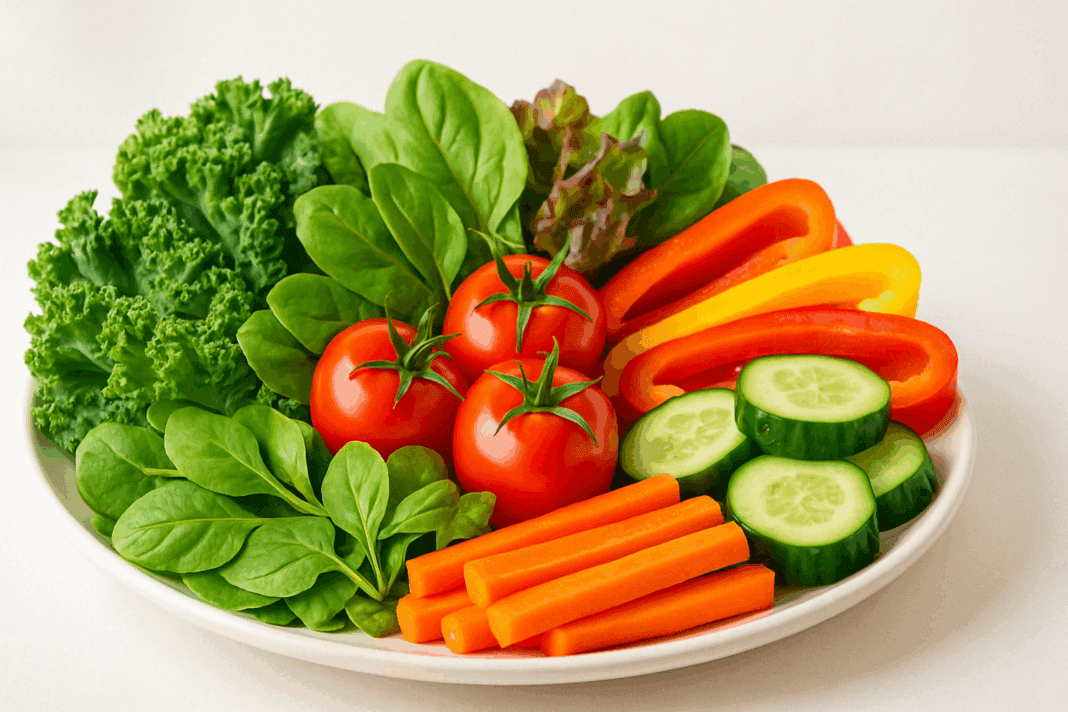Vegetables have long been lauded as the cornerstone of a healthy diet. Yet, in recent years, questions like “can vegetables make you fat,” “do veggies make you fat,” or even “will vegetables make you fat” have emerged across social media, blogs, and even casual dinner table conversations. These inquiries may seem counterintuitive given the long-standing health halo around vegetables. But behind this growing curiosity lies a more complex discussion around nutrition, calorie density, metabolic health, and even diet fads like keto and low carb.
You may also like: Plant Based Diet vs Standard American Diet: What the Latest Studies Reveal About Long-Term Health Outcomes
Understanding whether vegetables could potentially contribute to weight gain requires a scientific and nuanced exploration. This article dives deep into what current research reveals about the role of vegetables in weight management, how they compare to high-fat diets like keto, and what people need to know to make informed decisions about their health. We’ll also explore how whole-food plant-based nutrition stacks up against s keto low carb eating patterns and answer common questions about vegetarian eating habits along the way.
Vegetables and Caloric Density: The Foundation of the Question
At the heart of the question “can vegetables make you fat” is the principle of caloric density. Caloric density refers to how many calories are packed into a given volume or weight of food. Vegetables—particularly non-starchy ones like leafy greens, cucumbers, tomatoes, and bell peppers—are among the lowest-calorie foods you can eat. A cup of spinach contains just about 7 calories. Even slightly more calorie-dense vegetables, such as carrots or beets, still offer significant fiber, water content, and micronutrients while remaining low in energy density.
However, caloric density shifts when we move from non-starchy to starchy vegetables like potatoes, corn, and peas. These foods contain more carbohydrates and calories per gram, though they still provide fiber and nutrients. In extremely large quantities, or when prepared with oils or fats, these starchy vegetables can contribute to excess calorie intake. But this requires intentional overeating—an uncommon occurrence among those eating a predominantly whole-food, plant-based diet.
Thus, the scientific answer to “do veggies make you fat” is generally no—unless they are consumed in unnatural forms (e.g., deep-fried potatoes or overly processed vegetable-based snacks), or as part of an overall calorie surplus. In their whole form, vegetables are far more likely to support weight management than cause weight gain.
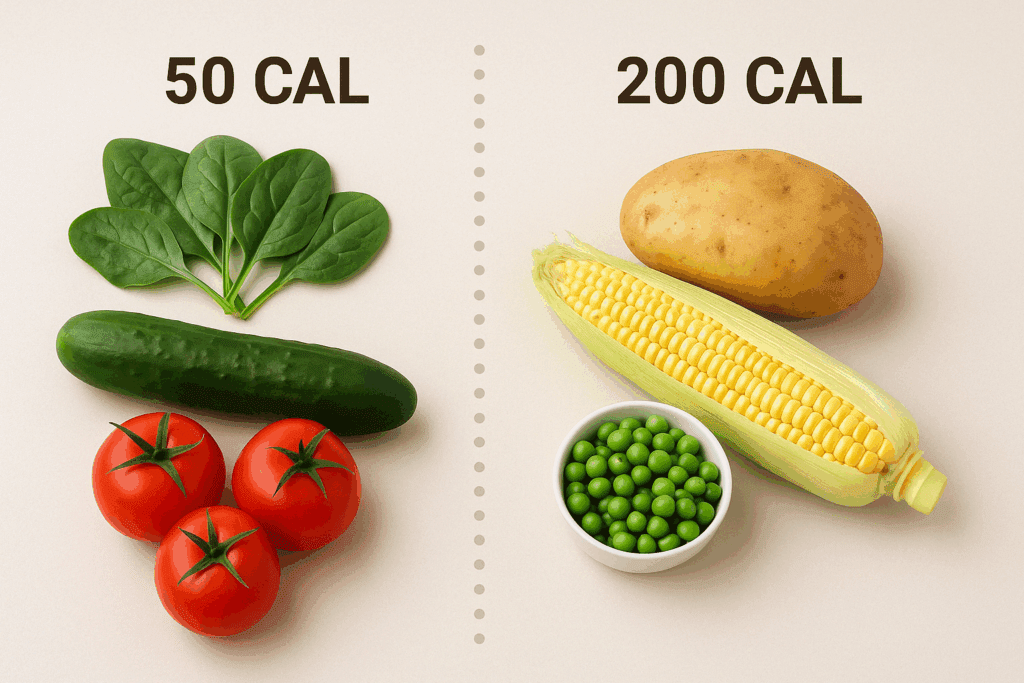
Comparing Plant-Based Diets to S Keto Low Carb Approaches
In contrast to vegetable-rich diets, s keto low carb regimens focus on limiting carbohydrate intake and encouraging fat consumption. While vegetables are not entirely excluded from keto diets, many higher-carb vegetables are limited or avoided. This creates an interesting comparison: Is a low-carb, high-fat approach more effective for weight control than a vegetable-forward, plant-based eating plan?
The ketogenic diet vs low carb model does produce short-term weight loss results for many people. This is primarily due to the body’s shift into ketosis, where it burns fat for energy in the absence of carbohydrates. However, ketosis is often achieved through the restriction of even nutrient-rich carbohydrates, including many vegetables.
While weight loss may be more rapid at first, this does not inherently mean that keto is superior in the long term. A whole-food plant-based diet offers sustained satiety through fiber, phytonutrients, and high water content. When comparing low carb diet keto diet plans with plant-based ones, science shows that plant-based diets are associated with lower long-term risk of cardiovascular disease, type 2 diabetes, and obesity—without the need to restrict nutrient-dense vegetables.
Vegetables, Satiety, and Natural Calorie Regulation
One of the most compelling reasons that vegetables do not make you fat is their effect on satiety. High-fiber, high-volume foods signal fullness to the brain more effectively than low-volume, high-calorie alternatives. This means that a large plate of steamed broccoli, kale, and carrots might fill you up with fewer than 200 calories, while a similar calorie amount of cheese or oil would scarcely fill a corner of the plate.
Moreover, when we ask “will vegetables make you fat,” we must consider the hormonal and metabolic impacts of vegetable consumption. Fiber regulates blood sugar, delays gastric emptying, and reduces insulin spikes. All of these contribute to better metabolic health and appetite control. Diets rich in whole vegetables are not only less calorie-dense but also self-limiting, helping people naturally regulate their food intake.
In contrast, the s keto low carb model often reduces fiber intake due to the avoidance of many plant-based carbs. Over time, this could lead to digestive issues and changes in gut microbiota that may affect weight regulation. While some keto plans attempt to include fibrous vegetables, strict adherence to keto often leaves out beneficial options like sweet potatoes, carrots, and legumes.
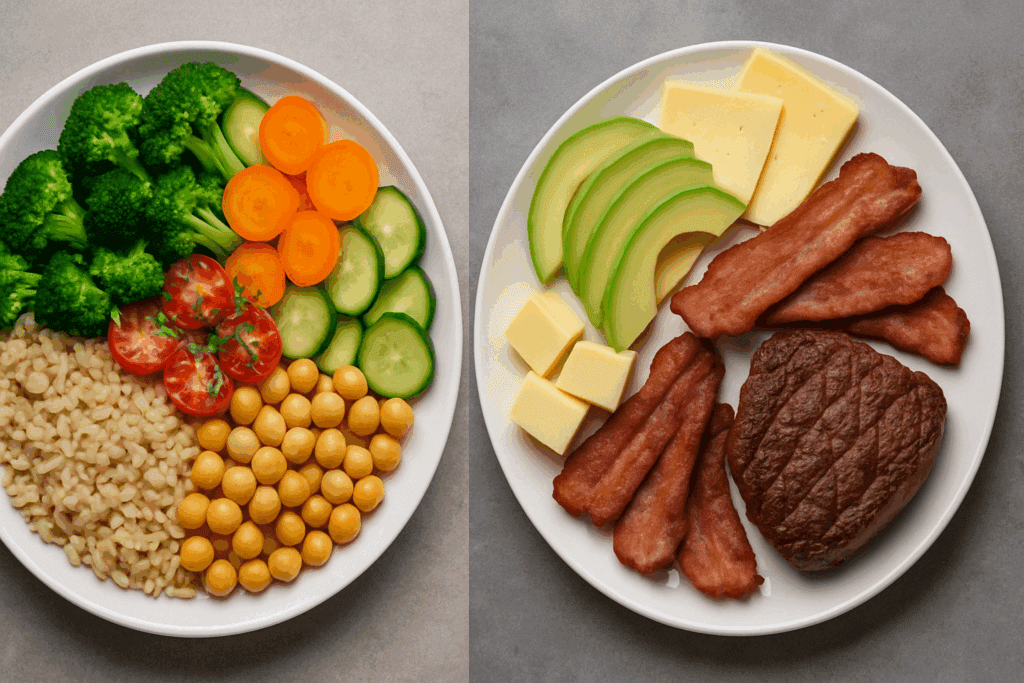
Do Veggies Make You Fat When Eaten in Excess?
It is biologically possible to gain weight by eating too much of any food, including vegetables. But in real-world terms, it is extraordinarily difficult to eat enough vegetables to create a consistent calorie surplus. To put it in perspective, you would need to eat about 15 cups of cooked broccoli (roughly 1,000 calories) to match the energy in just a small serving of bacon or a handful of nuts.
That said, calorie-dense preparations of vegetables do exist. Adding cheese, cream-based sauces, or deep-frying vegetables can dramatically raise their caloric load. In this context, asking “can vegetables make you fat” becomes more about how the vegetables are prepared and less about the vegetables themselves.
So, while technically overeating vegetables is not impossible, it’s highly unlikely without significant caloric additions from oils or animal products. Conversely, a diet abundant in whole, unprocessed vegetables typically supports weight loss and maintenance.
The Role of Cooking Methods in Caloric Impact
The way vegetables are prepared matters. Roasted Brussels sprouts tossed in olive oil or tempura-battered zucchini fried in oil are far more calorie-dense than raw or steamed versions. Cooking methods that add fat not only increase calories but may also mask hunger cues, leading to overconsumption.
Even methods like sautéing or stir-frying can double or triple the caloric load of a vegetable dish depending on the amount and type of oil used. Olive oil contains about 120 calories per tablespoon, and it’s easy to use several tablespoons in a single meal.
Therefore, if you’re wondering “will vegetables make you fat,” it’s important to consider the context. Vegetables themselves are not the problem—but how they’re prepared can shift their health impact substantially. Whole-food plant-based diets minimize added oils and instead use broth, steaming, or dry-roasting to preserve flavor while maintaining low calorie density.
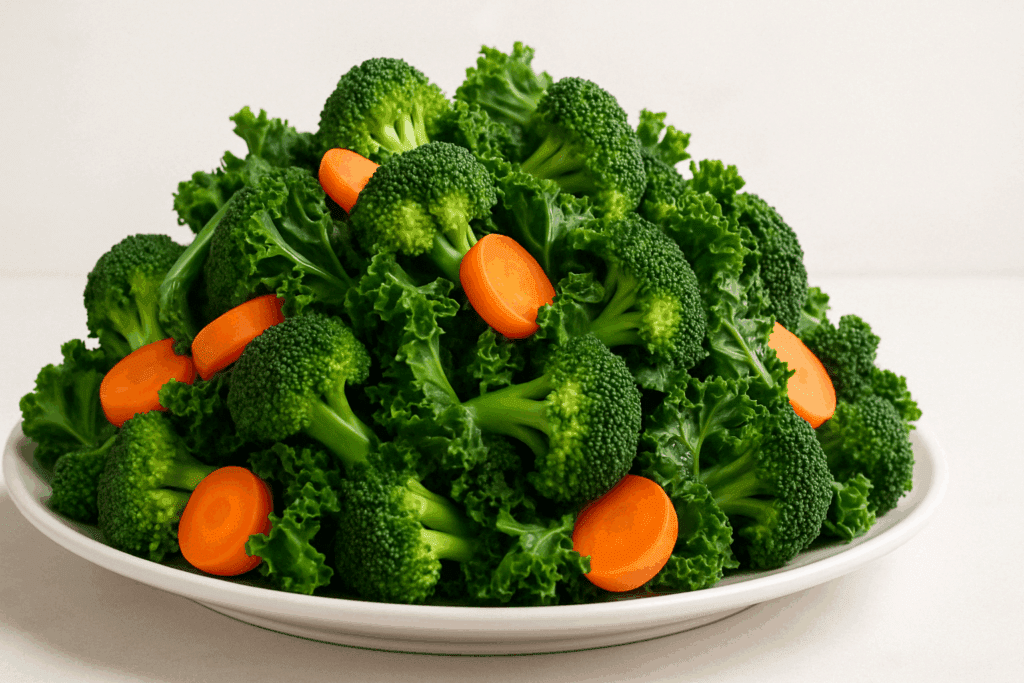
Low-Carb Diet Keto Diet Trends vs. Plant-Based Eating
The resurgence of keto diets has raised new questions about the place of vegetables in modern weight-loss strategies. Many followers of the keto lifestyle restrict or eliminate higher-carb vegetables and legumes in favor of fatty meats, butter, and coconut oils. This sparks debate around the question: is keto a good diet long-term?
Keto’s short-term weight loss appeal is well-documented, but its long-term sustainability and nutrient adequacy are widely questioned. Despite its popularity, studies show that keto diets often lead to micronutrient deficiencies, reduced gut microbiota diversity, and challenges with adherence. When comparing a keto diet vs low carb diet, the latter often allows for a broader intake of vegetables, making it slightly more balanced—yet both still fall short of the diversity found in whole-food plant-based diets.
By contrast, plant-based diets that include a wide variety of vegetables, whole grains, legumes, nuts, and seeds consistently show strong outcomes in long-term weight maintenance, cardiovascular health, and metabolic resilience. For individuals seeking not just weight loss but also holistic wellness, the evidence supports plant-forward patterns over restrictive fat-centric plans.
Understanding Carbohydrates in Vegetables and Weight Gain Myths
A common myth driving the fear of vegetables is the association between carbohydrates and weight gain. Because vegetables—especially starchy ones—contain carbohydrates, some people fear that they’ll sabotage weight-loss goals. This misconception has been popularized by s keto low carb trends, which mistakenly equate all carbs with fat gain.
Yet carbohydrates are not inherently fattening. In fact, they are the body’s preferred fuel source. Complex carbohydrates found in whole vegetables break down slowly, providing sustained energy and promoting satiety. When these carbs are accompanied by fiber and water, as they are in most vegetables, the glycemic impact is minimal.
Moreover, research shows that whole-food plant-based diets that are high in healthy carbs (like sweet potatoes, squash, and lentils) are associated with lower body mass index and better long-term weight regulation. So if you’re asking, “do veggies make you fat,” the answer remains no—when consumed in their natural form, carbs in vegetables are health-promoting, not weight-promoting.
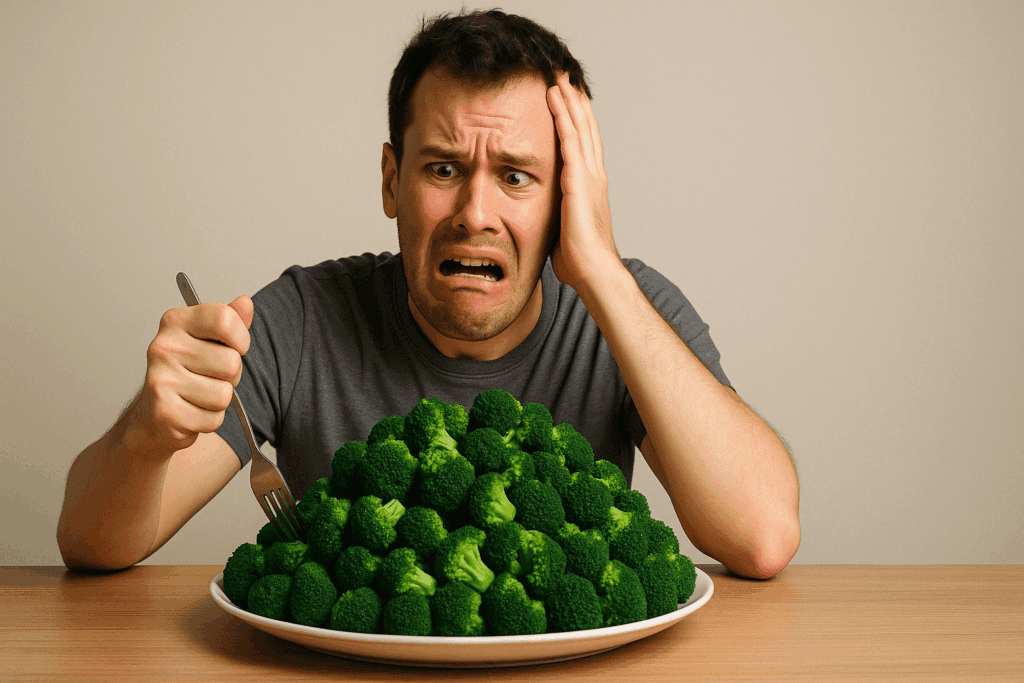
Is a Keto Diet Sustainable When Vegetables Are Limited?
The sustainability of any diet depends on its long-term health impact, practicality, and enjoyment. Many people find it challenging to adhere to a strict keto lifestyle over the long haul, particularly due to its exclusion of high-fiber, nutrient-rich plant foods. This brings up an important question: is a keto diet sustainable?
In the short term, the results can seem promising. However, studies have shown that many keto dieters experience fatigue, digestive issues, and social limitations due to the diet’s rigidity. The lack of variety and restrictive nature can reduce long-term compliance. Conversely, a plant-based diet emphasizes inclusion rather than exclusion, encouraging a broad spectrum of colors, flavors, and nutrients.
A more balanced, inclusive approach can also be psychologically sustainable, which is key to long-term health outcomes. While s keto low carb strategies may deliver fast results, they often come at the cost of dietary flexibility, micronutrient diversity, and digestive health. Including a wide array of vegetables supports sustainability, nutrient adequacy, and satisfaction.
The Broader Health Implications of Vegetable-Rich Diets
Aside from weight management, vegetable-rich diets provide a wealth of protective benefits. Antioxidants, polyphenols, and phytochemicals found in vegetables reduce inflammation and oxidative stress. These compounds have been linked to reduced risk of heart disease, certain cancers, cognitive decline, and type 2 diabetes.
No evidence suggests that vegetables in their whole form contribute to metabolic dysfunction. In fact, quite the opposite is true—studies continue to confirm that increased vegetable consumption improves insulin sensitivity, reduces abdominal fat, and promotes a healthy gut microbiome. Asking “can vegetables make you fat” misses the forest for the trees: the more vegetables people eat, the better their long-term health outcomes appear to be.
Understanding What Vegetarians Eat: Clearing Up Confusion
In exploring the broader context of plant-based eating, it’s helpful to address some common questions: Do vegetarians eat rice? Can vegetarians eat eggs and milk? Does a vegetarian eat butter?
The answers vary depending on the type of vegetarianism. Most vegetarians do eat rice, as it’s a staple plant-based grain. Lacto-ovo vegetarians also consume eggs and milk, while some include butter, depending on ethical or dietary preferences. In contrast, vegans abstain from all animal products, including eggs, dairy, and butter.
These dietary choices impact how many vegetables and plant-based staples a person consumes. Vegetarians often incorporate a wider range of plant-based foods into their diet, which contributes to higher fiber intake, more diverse nutrients, and lower calorie density compared to omnivorous or keto-style eating.
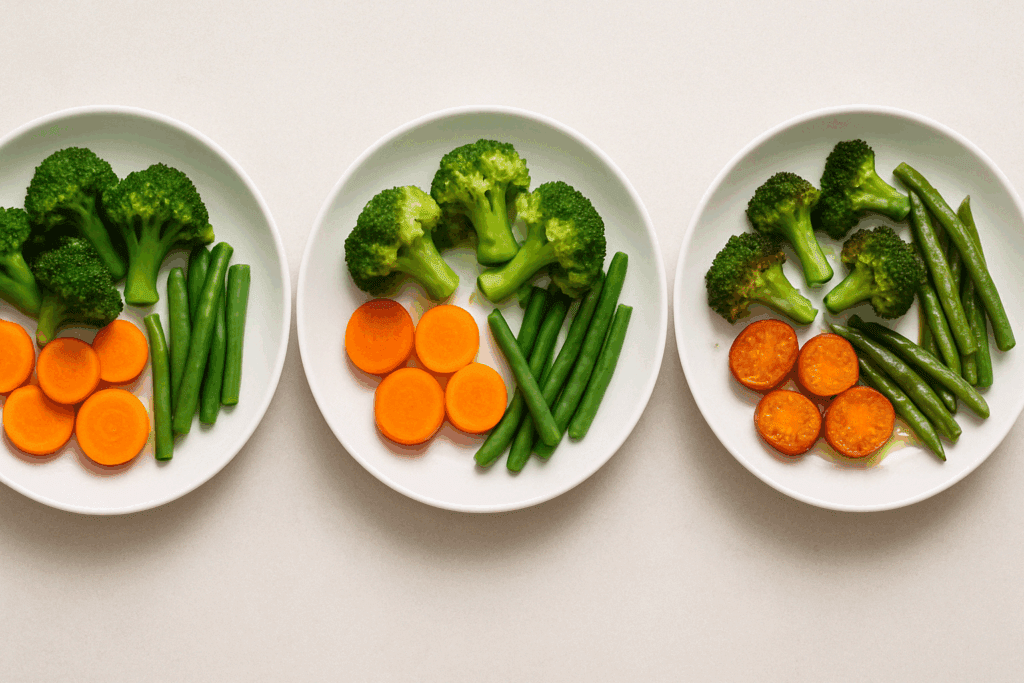
Frequently Asked Questions: Can Vegetables Make You Fat?
1. Can certain vegetables contribute to weight gain more than others?
Yes, but context matters. While non-starchy vegetables like spinach, broccoli, and zucchini are extremely low in calories and unlikely to cause weight gain, starchy vegetables such as potatoes, corn, and peas are more calorie-dense. When consumed in large portions or prepared with high-fat toppings, even these healthier starches can tip the scale. However, asking “can vegetables make you fat” without considering preparation methods and portion sizes oversimplifies the issue. The real culprit behind unexpected weight gain is often what accompanies the vegetables—oils, creams, and added sugars—not the vegetables themselves.
2. If I snack constantly on vegetables, will vegetables make you fat over time?
Frequent snacking on vegetables rarely leads to weight gain due to their low energy density and high fiber content. Still, it’s essential to examine why constant snacking is happening in the first place. Mindless eating—even of healthy foods—can override natural hunger cues, especially when meals lack balance. Also, dipping raw vegetables into calorie-rich sauces repeatedly throughout the day may cause a gradual surplus in caloric intake. In this case, it’s not accurate to say do veggies make you fat, but the way they are consumed may inadvertently contribute to weight gain.
3. Do veggies make you fat if you eat them at night?
There’s no scientific evidence suggesting that eating vegetables at night leads to weight gain. The human body processes calories and nutrients based on overall energy balance—not strictly the time of day. However, late-night eating habits that include overeating or consuming vegetables alongside calorie-dense foods can add up. If you’re pairing your evening veggies with butter, cheese, or heavy dressings, that’s a different story. So, no—vegetables themselves don’t make you fat at night, but the context still matters.
4. Can vegetables make you fat if they’re part of a juice or smoothie?
Vegetables in juice or smoothie form can be beneficial, but there’s a catch. Juicing strips fiber, which plays a crucial role in satiety and blood sugar regulation. If vegetable juices are combined with fruits or sweetened with syrups, they may become more calorie-dense than intended. Smoothies, on the other hand, may include nut butters, seeds, or sweetened plant-based milks that drive up calorie content. So if you’re wondering, “can vegetables make you fat” in liquid form, the answer depends on what else is in the blender.
5. Do veggies make you fat when combined with high-fat diets like keto?
In a ketogenic or low-carb setting, vegetables are usually consumed in limited quantities to manage carbohydrate intake. However, high-fat keto meals often include vegetables drenched in butter, cheese, or heavy cream. When paired this way, vegetables may be part of a high-calorie meal even if they themselves are not calorically dense. Asking “will vegetables make you fat” in this context is misleading—it’s the added fats that pose the risk. Still, for those not mindful of portion sizes, calorie creep can occur even in vegetable-heavy keto meals.
6. Is it possible that certain individuals gain weight more easily from vegetables than others?
Genetic variations, gut microbiota composition, and metabolic differences can influence how individuals process different foods, including vegetables. For example, some people may have slower digestion, leading them to feel hungry sooner even after high-volume meals. Others may experience bloating from certain cruciferous vegetables, leading to discomfort that gets mistaken for fat gain. However, despite these variations, there’s no evidence to support the idea that vegetables directly cause weight gain in metabolically healthy individuals. So while the question “do veggies make you fat” might apply in nuanced metabolic cases, it doesn’t hold up broadly across populations.
7. Can vegetables make you fat if your overall diet lacks balance?
Yes, but not for the reasons most people think. An overreliance on vegetables while neglecting proteins, fats, and complex carbohydrates can lead to nutrient imbalances and cravings. These cravings might drive overeating of calorie-dense foods later in the day. In this case, it’s not that vegetables make you fat, but that a poorly balanced diet sets the stage for compensatory behaviors that do. A varied, whole-food approach is key to preventing rebound eating and maintaining a healthy weight.
8. Will vegetables make you fat if you’re trying to gain muscle or increase caloric intake?
Ironically, some individuals trying to bulk up struggle to meet their caloric needs on a vegetable-rich diet due to the sheer volume required. Vegetables are filling, which can suppress appetite and make it harder to consume enough protein and energy for muscle gain. In this context, the concern isn’t “will vegetables make you fat,” but rather, “can vegetables prevent weight gain when it’s desired?” Athletes and bodybuilders often have to limit low-calorie vegetables in favor of more energy-dense plant foods to meet their nutritional goals. Vegetables still play a role—but not as the primary calorie source.
9. Do veggies make you fat if they’re part of processed or restaurant meals?
Absolutely—they can. Many restaurant meals include vegetables that are cooked in butter, oils, or served with sauces that significantly increase the calorie count. For example, a seemingly healthy vegetable stir-fry could contain over 1,000 calories due to the oil and sugary sauces used. When people ask, “can vegetables make you fat,” they’re often unknowingly referring to these hidden calories. Cooking at home with minimal oil is one of the best ways to ensure vegetables remain a weight-friendly part of your diet.
10. How can I include more vegetables in my diet without worrying they’ll make me fat?
The best approach is to focus on cooking methods that preserve nutrients without adding excess fat—steaming, roasting with minimal oil, or using herbs and spices instead of dressings. Pairing vegetables with a balance of whole grains, plant-based proteins, and healthy fats ensures a satisfying meal that promotes long-term health. To counter the fear behind “will vegetables make you fat,” consider tracking your food for a few days to observe portion sizes and added ingredients. Most people discover that vegetables make them feel fuller with fewer calories—not the other way around. Ultimately, vegetables should be celebrated, not feared, for their role in maintaining a healthy weight and lifestyle.
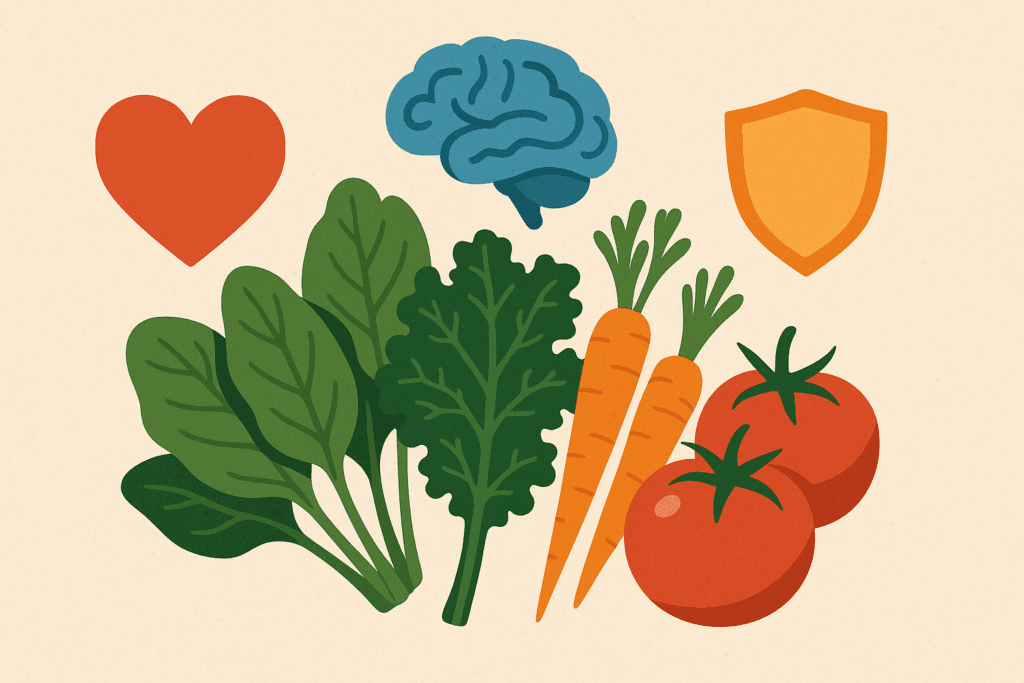
Final Thoughts: Do Veggies Make You Fat or Help You Thrive?
So, will vegetables make you fat? The overwhelming body of evidence says no. In their whole, minimally processed form, vegetables are allies in weight management, metabolic health, and disease prevention. Their high fiber, water, and nutrient content makes them uniquely suited to support satiety, reduce calorie intake, and promote overall health.
Vegetables only become problematic when they’re processed, deep-fried, or covered in high-calorie additives. Even then, it’s not the vegetable causing weight gain—it’s the preparation method. When compared to restrictive approaches like s keto low carb or ketogenic diet vs low carb plans, vegetable-rich diets consistently prove more sustainable, enjoyable, and beneficial in the long term.
Whether you’re aiming to lose weight, improve health markers, or simply eat more mindfully, the inclusion of a wide variety of vegetables is one of the most evidence-backed choices you can make. Rather than asking “do veggies make you fat,” the more important question is: how can we include more of these powerful foods in our daily lives to support lasting wellness?
When it comes to deciding between a keto diet vs low carb diet or embracing plant-based nutrition, remember that sustainable, fiber-rich diets rooted in whole foods—especially vegetables—are not only better for long-term health, but also for long-term adherence. While the question “is keto a low carb diet” has a straightforward answer, the more nuanced truth is that not all carbs are created equal—and in the case of vegetables, they’re a powerful force for good.
Was this article helpful? Don’t let it stop with you. Share it right now with someone who needs to see it—whether it’s a friend, a colleague, or your whole network. And if staying ahead on this topic matters to you, subscribe to this publication for the most up-to-date information. You’ll get the latest insights delivered straight to you—no searching, no missing out.
Further Reading:
Do Vegetables Make You Gain Weight? Overeating Vegetables
The Relationship between Vegetable Intake and Weight Outcomes: A Systematic Review of Cohort Studies
21 Diet Foods That Can Make You Gain Weight
Disclaimer
The information contained in this article is provided for general informational purposes only and is not intended to serve as medical, legal, or professional advice. While NewsHealthWatch strives to present accurate, up-to-date, and reliable content, no warranty or guarantee, expressed or implied, is made regarding the completeness, accuracy, or adequacy of the information provided. Readers are strongly advised to seek the guidance of a qualified healthcare provider or other relevant professionals before acting on any information contained in this article. NewsHealthWatch, its authors, editors, and contributors expressly disclaim any liability for any damages, losses, or consequences arising directly or indirectly from the use, interpretation, or reliance on any information presented herein. The views and opinions expressed in this article are those of the author(s) and do not necessarily reflect the official policies or positions of NewsHealthWatch.

